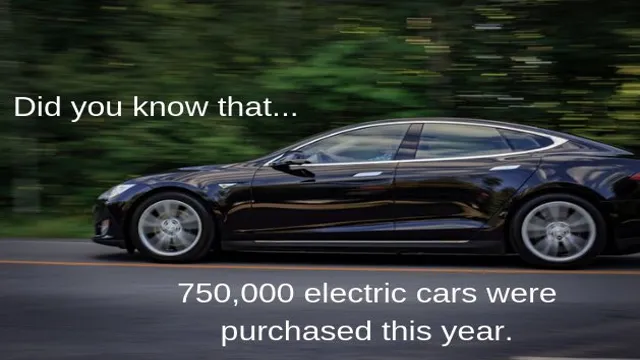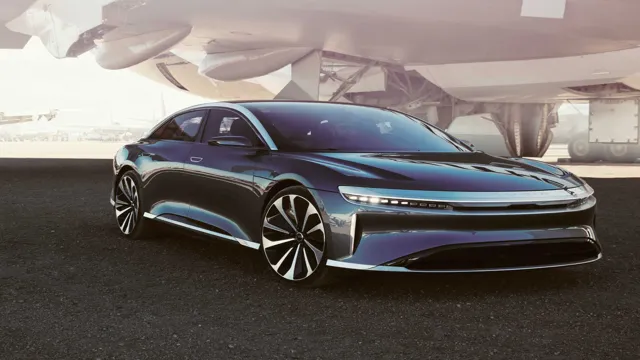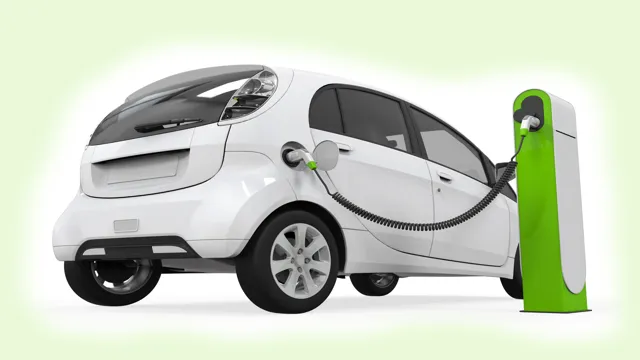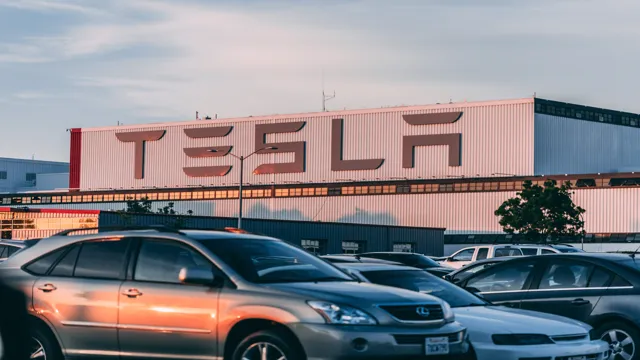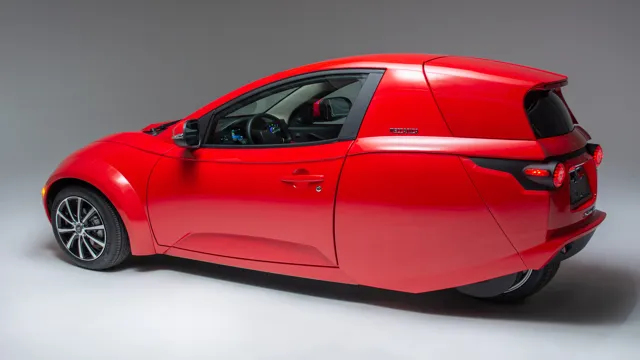Electric Cars: Revolutionizing the Automotive Industry – Catch Up on the Latest News and Articles
Electric cars are a hot topic these days, with more and more people expressing interest in environmentally-friendly transportation options. As technology continues to advance, the market for electric cars is growing rapidly, with new models hitting the market every year. So, what’s the latest news in the world of electric cars? In this blog, we’ll take a look at some exciting developments in the industry, from new charging technologies to the latest models hitting the showroom floor.
Whether you’re an electric car enthusiast or just curious about the future of transportation, you’re sure to find something interesting in this post. So, buckle up and let’s dive in!
Global Rise in Sales
News articles covering the global sales of electric cars have been on the rise recently, and for good reason. With an increasing need for sustainable and environmentally friendly transportation, the demand for electric cars has skyrocketed. In fact, sales have increased by over 65% in the first half of 2021 alone, compared to the same time period in 2020.
This growth can be attributed to a number of factors, including advancements in technology, government incentives and regulations, and a growing public awareness of the need for cleaner transportation options. It’s clear that electric cars are no longer just a trend, but a necessary solution to combatting climate change. As more and more people make the switch to electric vehicles, we can look forward to a future where emissions are drastically reduced, and our streets are filled with silent, emissions-free cars.
Data on the increase in electric car sales across different regions.
According to recent data, the sale of electric cars has been on the rise globally. Western Europe saw a significant increase in electric car sales in the first half of 2021 compared to the same period last year, with France doubling its sales and Germany experiencing an increase of 150%. In the United States, there was a notable growth in the sale of electric cars during the first quarter of 2021, with a 44% YoY increase.
The trend was also noticeable in China, the world’s largest market for electric vehicles. Despite the negative impact of the COVID-19 pandemic, electric cars were in high demand in China in the first half of 202 The data suggests that people’s concern about the environment and their desire to reduce their carbon footprint have driven the sales of electric vehicles globally.

Factors driving the growth and future projections.
The global rise in sales is one of the main factors driving the growth of various industries, including consumer electronics, apparel, and health and beauty products. This growth can be attributed to several factors, such as population expansion, increased urbanization, and rising disposable incomes. As more and more people shift from rural to urban areas, there is an ever-increasing demand for products and services that cater to the needs of this urban population.
Additionally, with the internet and social media, there has been an increase in brand awareness and product visibility. This has led to a surge in online sales, particularly during the COVID-19 pandemic when many physical stores were closed. Based on current trends, projections show that this upward trajectory in sales is set to continue into the future.
This is good news for businesses that are able to capitalize on these trends, particularly those that are able to adapt to the changing landscape and consumer demands.
Technological Advancements
Electric cars have come a long way since their inception, and recent news articles indicate that they are only going to keep getting more advanced. One of the biggest technological advancements in this field is the development of self-driving electric cars. These innovative vehicles are equipped with cutting-edge features like sensors, cameras, and GPS, which enable them to navigate roads and avoid obstacles entirely on their own.
This breakthrough technology promises to revolutionize transportation as we know it, offering a greener, safer, and more convenient way to travel. As electric cars continue to evolve, we can expect to see even more amazing advancements that will make our daily commutes faster, more efficient, and more sustainable. From battery innovations to charging infrastructure, the future of electric cars is looking brighter than ever before.
So, if you’re in the market for an eco-friendly vehicle, now is the perfect time to jump on board with this exciting trend.
Overview of the latest technological advancements in electric cars.
Electric cars are quickly becoming more popular as people start to prioritize environmentally friendly options. Technological advancements are continuously being made to improve their performance, making them more accessible and practical for everyday use. One major innovation in electric cars is the development of longer-lasting batteries.
These new batteries can last for hundreds of miles on a single charge, making them a viable option for long-distance travel. Additionally, charging stations are becoming more widespread, allowing drivers to quickly and easily recharge their vehicle on the go. Another major improvement is the implementation of regenerative braking, where the energy lost during braking is captured and used to recharge the battery.
This means that electric cars can now recuperate some of the energy they would otherwise lose, increasing their overall efficiency. The advancement of semi-autonomous and autonomous driving technologies is also helping to improve electric cars. These systems allow for more efficient driving and can automatically adjust speed and distance to other vehicles, helping to minimize energy usage.
With all of these improvements, it’s clear that electric cars are becoming a more practical and efficient alternative to traditional gas-powered vehicles.
Potential impact of latest technology on the future of the industry.
The potential impact of the latest technology on the future of the industry cannot be ignored. Technological advancements are changing the way we work and live, and the same is true for the industry. With the growth of the internet, cloud computing, and the Internet of Things (IoT), we can expect massive changes in the industry in the years to come.
These advancements will result in greater efficiency, higher productivity, and better quality products. For example, the use of AI and machine learning will revolutionize the manufacturing process and reduce the cost of production. In addition, the use of augmented reality and virtual reality will provide a better customer experience and reduce the need for physical products.
We can expect to see a lot of changes as these technologies develop, and it is essential for businesses to embrace them to remain competitive. The potential impact of these technological advancements is enormous, and it is up to us to harness them for our benefit.
Comparison with traditional gas automobiles.
When compared to traditional gas automobiles, electric cars have made significant technological advancements. These advancements have resulted in electric cars being more efficient, eco-friendly, and cost-effective compared to their gas-powered counterparts. For instance, many electric cars are now equipped with regenerative braking systems that convert energy lost during braking into electrical energy stored in the car’s battery.
This improves the efficiency of the car’s motor, thus increasing its range. Additionally, the battery technology used in electric cars is continually evolving, with the latest batteries offering longer range, faster charging times, and improved durability. This not only makes electric cars more practical for everyday use but also more environmentally friendly since they emit no harmful emissions.
As a result, electric cars are becoming increasingly popular due to their cutting-edge technology that not only benefits the environment but also saves money for drivers in the long run.
Government Incentives
One of the many news articles on electric cars people have been reading about lately is the growing number of government incentives provided to encourage more individuals to go electric. As the world becomes more aware of climate change and the negative impact of traditional gasoline-fueled vehicles, governments around the globe have taken a step towards promoting electric vehicles by creating policies and regulations that incentivize people to drive them. These incentives include tax credits, rebates, free charging stations, and exemptions from toll and congestion charges.
Not only does this make electric vehicles more affordable and accessible to the masses, but it also promotes sustainable and clean energy use, ultimately reducing the carbon footprint of transportation. With more and more global brands, such as Tesla and Nissan, committed to creating more eco-friendly and cost-effective electric cars, the future of transportation looks promising.
Overview of government incentives encouraging the adoption of electric cars.
Government incentives are playing a significant role in encouraging the widespread adoption of electric cars. These incentives primarily include tax credits, rebates, and grants, which can lower the cost of purchasing an electric car by thousands of dollars. For instance, in the US, federal tax credits of up to $7,500 are offered to individuals who buy electric cars, depending on the battery’s size and vehicle’s efficiency.
Several states also offer additional incentives on top of federal ones, such as sales tax exemptions, income tax credits, and free parking or charging. Moreover, the governments worldwide are investing heavily in the development of electric vehicle charging infrastructure to address range anxiety concerns among potential buyers. With these incentives, governments hope to reduce carbon emissions and improve air quality, while also boosting local economies by creating new job opportunities in the green energy sector.
Discussion of the effectiveness of these incentives.
Government incentives have been the subject of much debate regarding their efficacy in driving economic growth and incentivizing positive behavior. While some argue that incentives such as tax breaks and subsidies can encourage companies to invest in R&D or expand their operations, others argue that these incentives can be too costly and often don’t produce the desired results. In order to determine their effectiveness, it’s important to look at the specific incentives being offered and the industries they are targeted towards.
For example, tax breaks for renewable energy may be more effective in driving industry growth than tax breaks for traditional fossil fuels. Additionally, it’s important to consider the timing of the incentives and their impact on the broader economic climate. While government incentives can certainly play a role in encouraging economic growth, they are just one piece of a larger puzzle and should be considered in conjunction with other economic policies and factors.
Overall, the effectiveness of government incentives depends on a multitude of factors and should be carefully evaluated on a case-by-case basis.
Challenges Ahead
The electric car market has been booming in recent years, with more and more manufacturers introducing electric models to their lineup. However, there are still a number of challenges that need to be addressed before electric cars can become the norm on our roads. One of the biggest challenges is the lack of charging infrastructure, which can make it difficult for drivers to find a place to charge their vehicles on longer journeys.
Another challenge is the high cost of electric cars, which can be prohibitively expensive for many consumers. Despite this, there is no denying that the adoption of electric cars is on the rise, with more and more news articles citing their benefits for the environment and drivers alike. As governments continue to push for the adoption of electric cars, it is likely that we will see more investment in charging infrastructure and a reduction in the cost of electric vehicles.
Overview of challenges that electric car industry is currently facing.
The electric car industry is rapidly growing, but it’s not without its challenges. One of the biggest hurdles electric vehicle manufacturers face is range anxiety – the fear of running out of battery power before reaching a charging station. This fear is justified, as charging infrastructure is still not as widespread as petrol stations, and charging times can take significantly longer.
Additionally, electric cars are still more expensive than traditional petrol cars, which presents a barrier for many potential buyers. Finally, there is the issue of battery disposal. While electric cars are environmentally-friendly during use, their batteries contain toxic chemicals and metals that can be harmful to the environment when disposed of improperly.
Overall, these challenges must be addressed in order for the electric car industry to continue growing and thrive in the future.
Potential solutions to tackle these challenges.
As the world becomes more connected, so do the challenges we face in its wake. Tackling these challenges requires innovative solutions that are capable of adapting to the ever-evolving landscape of the digital world. One potential solution is to invest in artificial intelligence (AI) to better manage the sheer volume of data that is constantly being generated.
This could involve developing predictive algorithms that help businesses anticipate future trends and adapt their strategies accordingly. Another solution is to focus on improving cybersecurity measures, as hacking and cybercrime remain a serious threat to businesses and individuals alike. By implementing robust security protocols and investing in technologies such as blockchain, we can better protect ourselves from malicious actors looking to exploit vulnerabilities in our digital infrastructure.
Ultimately, the challenges we face today require us to stay vigilant and continually innovate in order to keep pace with the rapidly changing landscape of the digital world.
Conclusion
In conclusion, while electric cars may have seemed like futuristic vehicles only a few years ago, they have now become a reality and are picking up speed in popularity. With the world increasingly focused on reducing carbon emissions and combating climate change, it’s no surprise that more and more people are turning to electric vehicles as a viable transportation option. Plus, with exciting new developments in technology and infrastructure, such as faster charging times and more accessible charging stations, the future of electric cars is only looking brighter.
So, hop in and buckle up, because the electric car revolution is here to stay!”
FAQs
What are some recent news articles about electric cars?
Recent news articles about electric cars include “Tesla Model Y Named Best Electric Vehicle for 2021” from Consumer Reports, “Biden Administration Pledges to Convert Federal Fleet to Electric Vehicles” from Reuters, and “Ford to Spend $22 Billion on Electric Cars Through 2025” from The New York Times.
How do electric cars compare to gas-powered cars in terms of cost?
The cost of electric cars is generally higher than gas-powered cars upfront, but the long-term savings on fuel and maintenance costs can make up for the initial investment. Additionally, there may be tax incentives or rebates available for purchasing an electric car.
What are some of the main benefits of owning an electric car?
Benefits of owning an electric car include lower emissions, lower fuel costs, quieter driving experience, and potentially longer lifespan due to simpler mechanics.
What challenges still exist for electric car adoption?
Some challenges facing electric car adoption include limited charging infrastructure, higher upfront costs, and concerns about range anxiety (the fear of running out of charge before reaching a destination). Additionally, there may be challenges with the disposal of batteries and lack of standardized charging protocols.
